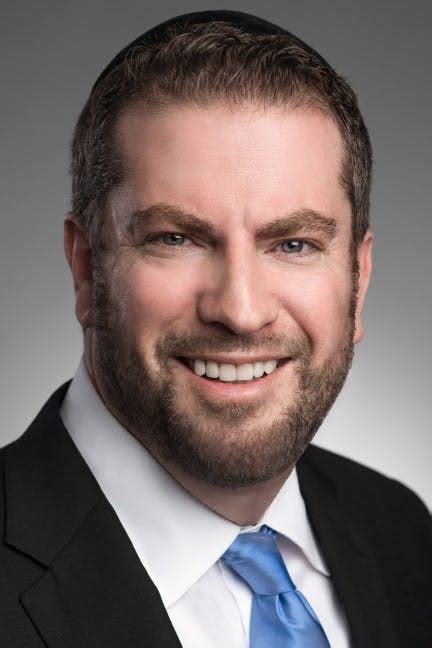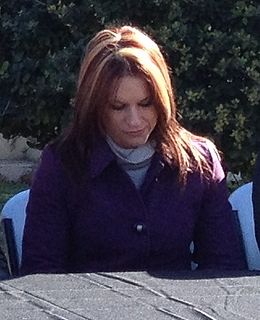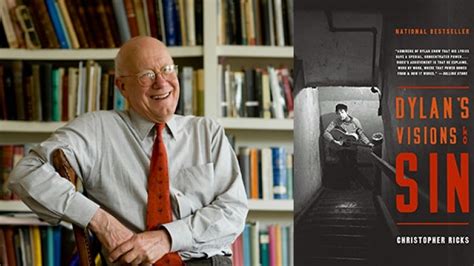Top 982 Versus Quotes & Sayings - Page 17
Explore popular Versus quotes.
Last updated on April 15, 2025.
But as Van casually directed the searchlight of backthought into that maze of the past where the mirror-lined narrow paths not only took different turns, but used different levels (as a mule-drawn cart passes under the arch of a viaduct along which a motor skims by), he found himself tackling, in still vague and idle fashion, the science that was to obsess his mature years - problems of space and time, space versus time, time-twisted space, space as time, time as space - and space breaking away from time, in the final tragic triumph of human cogitation: I am because I die.
Consider, for example, lust versus love. When we lust after someone or something, we think in terms of what they (or it) can do for us. When we love, however, our thoughts are immersed in what we can give to someone else. Giving makes us feel good, so we do it happily. But when we lust, we only want to take. When someone we love is in pain, we feel pain. When someone whom we lust is in pain, we only think in terms of what that loss or inconvenience means to us.
I typically don't use the distinction 'positive' and 'negative' liberty, because negative sounds bad and positive sounds good, and I don't think that the terminology ought to prejudice us one way or the other. So I think the more descriptive term is 'liberty rights' versus 'welfare rights'. So, liberty rights are freedom-of-action type rights, and welfare rights are rights-to-stuff, of various kinds...And, property rights are not rights-to-stuff. I think that's one of the key misunderstandings about property. Property rights are the rights to liberty within your jurisdiction.
Deregulation is a popular term that's used across the political spectrum. And it's one of these terms like "choice," that corporate interests have used because they know their focus-group buzzword testing makes it sound like a popular word. Because, who can be against deregulation? Being free, having liberty, not having someone tell you what to do, being deregulated, hey, that sounds great. But deregulation is a non sequitur in the realm of media policy or media regulation. The issue is never regulation versus deregulation; our entire system is built on media policies and subsidies.
The fact is that Britain is the most warlike nation on earth. In the history of armed combat, we are the only democracy to have declared war on another democracy - England versus Finland in the second world war, in case you're interested - and we're always at the front of the queue when Johnny Foreigner gets a bit uppity. Who stood up to the Kaiser? Who stood up to Adolf? And let's not forget the Argies. What other country would have sent its fleet halfway round the world and lost 250 men to protect a flock of sheep and some oil that might or might not be there? We're still at it.
Politics in the United States consists of the struggle between those whose change has been arrested by success or failure, on one side, and those who are still engaged in changing themselves, on the other. Agitators of arrested metamorphosis versus agitators of continued metamorphosis. The former have the advantage of numbers (since most people accept themselves as successes or failures quite early), the latter of vitality and visibility (since self-transformation, though it begins from within, with ideology, religion, drugs, tends to express itself publicly through costume and jargon).
If you just look at the number of roles for women versus the number of roles for men in any given film, there are always far more roles for men. That's always been true. When I went to college, I went to Julliard. At that time - and I don't know if this is still true - they always selected fewer women than men for the program, because there were so few roles for women in plays. That was sort of acknowledgment for me of the fact that writers write more roles for men than they do for women.
This is the personal side of things. When I started going through some of those transitions in my mind, just as a human being versus as an artist, I tried to... Essentially, I did this thing called Landmark Forum. It's three days of mind-expanding, existential philosophy, like Jean-Paul Sartre for everyday living. In existential philosophy they talk about "Being and Nothingness," this idea of not putting meaning onto things, and that in that way you live more purely. In other words, we form reality from these stories that we make up about our lives.
Sport industry is not women versus men. My biggest champions a lot of the times in my career have been those men. Not that women necessarily wouldn't, but if there are no women in the room and the door is locked, it takes a guy to unlock the door for you and let you in. We have to get better at working together in that regard, as opposed to feeling like we need to crash the door down. You don't need to bring out the ax; sometimes you can just knock. And sometimes guys will open the door for you, but for so many women who felt like they had to fight so hard, we forget that they may be allies.
The difference when I'm writing a story versus writing a joke is that writing a joke is so much more about the structure and it's less about the conversation. To me, the thing that I love about stand-up is the intimacy between performer and audience.To get it even more conversational was something that really appealed to me and that I really enjoyed doing. My early experiments with it, with just telling a story from my life on stage, it was so satisfying to do. And seemingly for the audience as well. It's a different thing, and it's a different feeling and a different vibe.
On the table, Donald Trump: I'm gonna let Obamacare fail. I am going to let it fail. I am not gonna own this. This is an utter failure, utter disaster. I've tried. I worked with people. Obviously we don't have enough Republicans who want to vote this way. We need more Republicans in 2018, but I'm gonna let it fail 'cause I am not owning this baby. So failure, which is Obamacare, stays in place with all of its problems, expenses, failures versus repealing it. I'm telling you, the most painful choice here is leaving Obamacare in place.
When some people ask me about voting, they would say will you support this candidate or that candidate? I say: "I will support this candidate for one minute that I am in the voting booth. At that moment I will support A versus B, but before I am going to the voting booth, and after I leave the voting booth, I am going to concentrate on organizing people and not organizing electoral campaign."
Assault weapons—just like armor-piercing bullets, machine guns, and plastic firearms—are a new topic. The weapons' menacing looks, coupled with the public's confusion over fully automatic machine guns versus semi-automatic assault weapons—anything that looks like a machine gun is assumed to be a machine gun—can only increase the chance of public support for restrictions on these weapons. In addition, few people can envision a practical use for these weapons.
We have to create conditions where people feel safe to feel and to care. That goes against a lot of our programming about how to make something change in the world. Sometimes you can pressure people into changing, you can force them, but the powers-that-be have more force than we do. I don't think we're going to win in a contest of force. I think we need to induce a change of heart. The narrative of "us versus them" is ultimately part of the problem. Traditional activism, which is about overcoming the latest bad guy, isn't deep enough. It just brings us another version of the same.
The fabliau, then, is a short story that is a tall story. It combines a burly blurting of dirty words with a reveling in humiliations that are good unclean fun. A popular venture that is keen to paste—épater—everybody (not just the bourgeoisie), it is the art of the single entendre. Highly staged low life, it guffaws at the pious, the prudish, and the priggish. High cockalorum versus high decorum…. The introduction here, like the translator’s note, tells well the story of the comic tales, anonymous for the most part, usually two or three hundred lines long, of which about 160 exist.
When I approach a more mature age, I am not going to live in America. Visiting my grandmother, when she was 94, which is a very long life in Cambodia, I saw how important it was that she was in a community with my sisters, brothers and all grandchildren were so involved in her life. I liked that experience so much more than visiting my sister-in-law's grandparents in a nursing home. It's about looking at a community through your window versus being part of a community that's alive, that is youthful and old and hungry and smelly and loud, where everything is vibrant and colorful.
The only advice that I know to give is to pray for your leaders. Whether you like it or not, we have a new president. As a church body, we need to remember these leaders, whether they are in office or not. Leaders in the workplace or the church, we need to remember them because they face some really hard decisions. So we need to pray for wisdom and peace and understanding and for patience, and for any and everything really because they're going to need it. So let's just gather around them and pray that God's will be done on earth, versus someone's agenda.
Individual versus group selection results in a mix of altruism and selfishness, of virtue and sin, among the members of a society. If one colony member devotes its life to service over marriage, the individual is of benefit to the society, even though it does not have personal offspring. A soldier going into battle will benefit his country, but he runs a higher risk of death than one who does not. An altruist benefits the group, but a layabout or coward who saves his own energy and reduces his bodily risk passes the resulting social cost to others.
The United States of American business pays the second-highest business taxes in the world, 35 percent. Ireland pays 11 percent. Now, if you're a business person, and you can locate any place in the world, then, obviously, if you go to the country where it's 11 percent tax versus 35 percent, you're going to be able to create jobs, increase your business, make more investment, et cetera. I want to cut that business tax. I want to cut it so that businesses will remain in the United States of America and create jobs.
I'm not doing it to pander to people. I just always knew what I liked versus what I don't like. I never liked things with too many zippers or spikes and stuff. That weirds me out. I like things that are pretty. And I think it's great to be pretty. I like being feminine. I think it's good to be feminine. We don't need to look like men or dress like men or talk like men to be powerful. We can be powerful in our own way, our own feminine way.
Noah is the battle of justice versus mercy. In Genesis it says that Noah was righteous in his times. You think you sort of know what righteous means, you know, if you listen to a lot of Bob Marley. According to all the biblical scholars we talked to, righteousness is the proper balance of justice and mercy. If you think of that, as a parent, you know that if you have too much justice and you're too strict, you destroy a child. If you have too much mercy, as a parent, you destroy a child as well. A big part of this movie is Noah finding mercy for man.





















